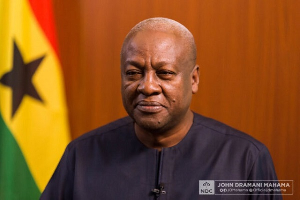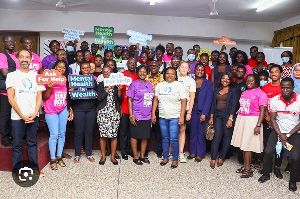The Ghana Union of Traders Association (GUTA) has urged the government to prioritise and implement policy actions that will make tax affordable, simple for businesses and encourage people to pay.
Dr Joseph Obeng, the President of the Association, said such policies would increase tax compliance, make the government rake in more domestic revenue to support sustainable economic growth and national development.
He said this in an interview with the Ghana News Agency ahead of the presentation of the Mid-year Budget Review, scheduled for Monday, July 31, 2023.
“The rate of taxes are high, which suppresses compliance, but it’s a vibrant private sector that drives every economy. Policies should, therefore, be aimed at making them thrive than burdening them with excessive taxes,” Dr Obeng said.
“The government should do everything possible to prune down the cost of doing business; COVID-19 levy should be out of the table, likewise, the special import levy. Value Added Tax (VAT) should be reduced, and its current structure be streamlined,” he added.
He said the government had recognised that excessive taxation impeded business growth and productivity hence the quest to move from taxation to production, but the current tax regime had defeated the goal.
“When you bring your goods into the country, you have to pay duty, ranging from 55 to 65 per cent as well as shipping line charges. After clearing your goods, you’d have to contend with VAT, which is up to 21 per cent."
"In addition to these are increases in utility tariffs and exchange rate depreciation, and the new taxes that have been introduced, and it’s such that all these are making doing business difficult,” Dr Obeng said.
He said businesses were forced to pass on the taxes customers whose purchasing power had reduced due to current economic happenings in the country.
A recent World Bank report on Ghana’s economy disclosed that inflationary pressures had reduced the purchasing power of many Ghanaians, pushing some 850,000 people into poverty.
The trade leader went on to say that the profit of businesses, from which they paid taxes to the government for more revenue also becomes impacted by the high taxes.
He said the economic crisis, which had led to Ghana’s 17th IMF bailout programme, coupled with “excessive taxes” had dwindled capital of many traders and businesses by some 50 per cent.
“Those who have the capacity to pay the taxes are outside the tax net, and the government must implement innovative measures to rope them in. It’s efficient systems that will make everybody pay,” Dr Obeng said.
“The taxes we pay here are too expensive than our neighbouring country. If that happens it suppresses compliance. We should see policies that will make taxes affordable and systems that will make people pay taxes easily,” he encouraged.
Business News of Tuesday, 25 July 2023
Source: GNA

















